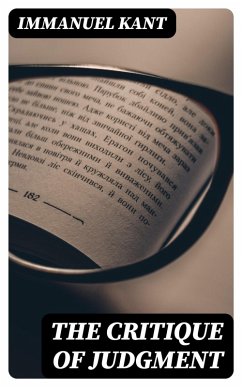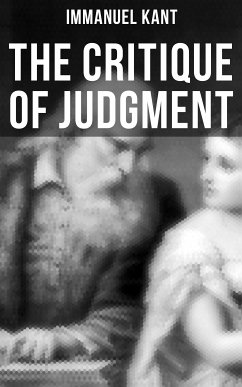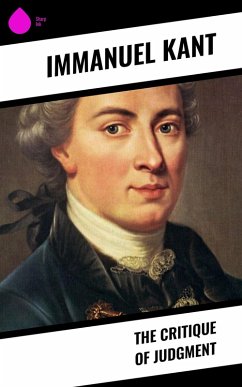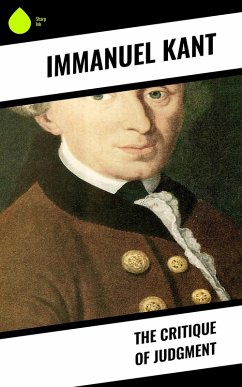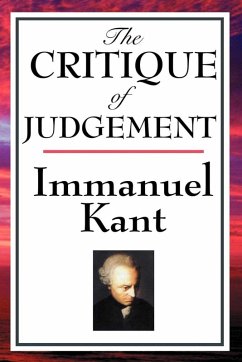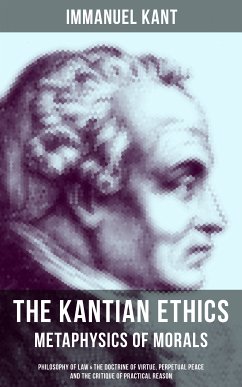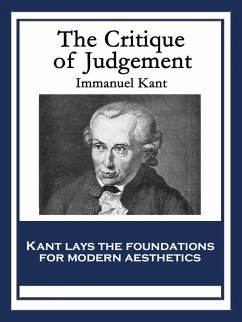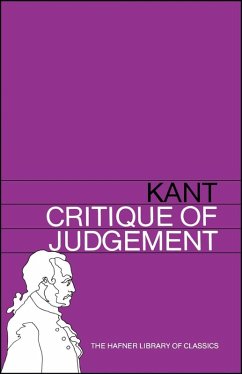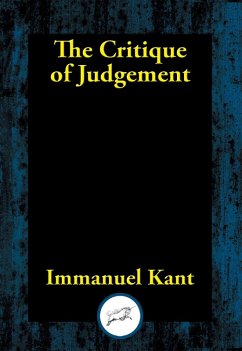
The Critique of Judgment (Theory of the Aesthetic Judgment & Theory of the Teleological Judgment) (eBook, ePUB)
Exploring Aesthetics and Teleology in Kantian Philosophy
Übersetzer: Bernard, J. H.

PAYBACK Punkte
0 °P sammeln!
In "The Critique of Judgment," Immanuel Kant meticulously examines the faculties of aesthetic and teleological judgment, bridging the gap between his earlier critiques of pure and practical reason. Kant's literary style is characterized by rigorous analysis and profound philosophical inquiry, employing a systematic approach that challenges the reader to engage with complex ideas. This work is set against the backdrop of the Enlightenment, where the interplay between reason and sensibility was a pivotal theme in philosophical discourse, positioning Kant as a key figure in exploring the relation...
In "The Critique of Judgment," Immanuel Kant meticulously examines the faculties of aesthetic and teleological judgment, bridging the gap between his earlier critiques of pure and practical reason. Kant's literary style is characterized by rigorous analysis and profound philosophical inquiry, employing a systematic approach that challenges the reader to engage with complex ideas. This work is set against the backdrop of the Enlightenment, where the interplay between reason and sensibility was a pivotal theme in philosophical discourse, positioning Kant as a key figure in exploring the relationship between beauty, purpose, and moral understanding. Immanuel Kant (1724-1804), a towering figure in Western philosophy, was profoundly influenced by the intellectual currents of his time, including rationalism and empiricism. His critical philosophy evolved from a desire to reconcile the limitations of human understanding with the search for universal moral laws. In "The Critique of Judgment," he offers insight into aesthetic experience and natural purposiveness, factors essential to his broader philosophical inquiry into the nature of human cognition and morality. This seminal work is essential for anyone delving into aesthetics or the philosophy of nature, as it not only deepens our understanding of art and beauty but also lays the groundwork for later philosophical developments. Readers will find Kant'Äôs exploration of aesthetic judgment both challenging and rewarding, offering a rich context for reflecting on the role of beauty in human experience.
Dieser Download kann aus rechtlichen Gründen nur mit Rechnungsadresse in A, B, BG, CY, CZ, D, DK, EW, E, FIN, F, GR, H, IRL, I, LT, L, LR, M, NL, PL, P, R, S, SLO, SK ausgeliefert werden.




